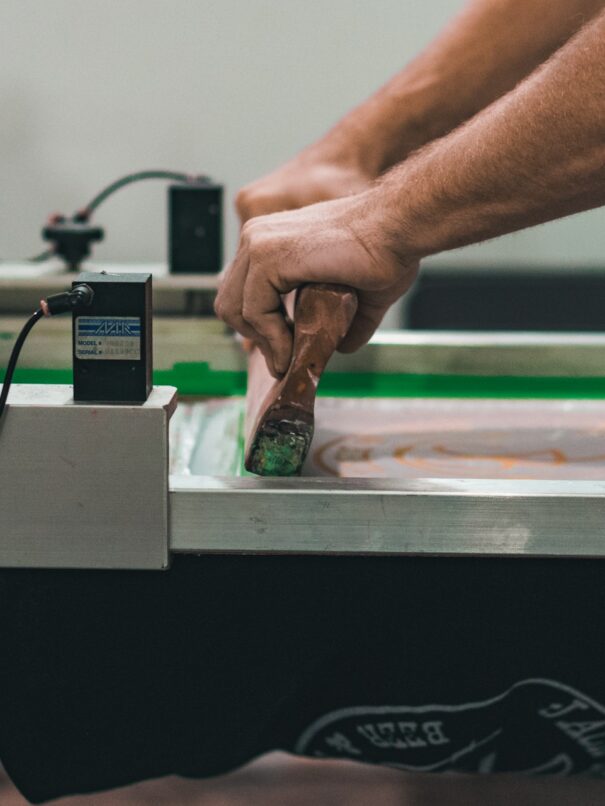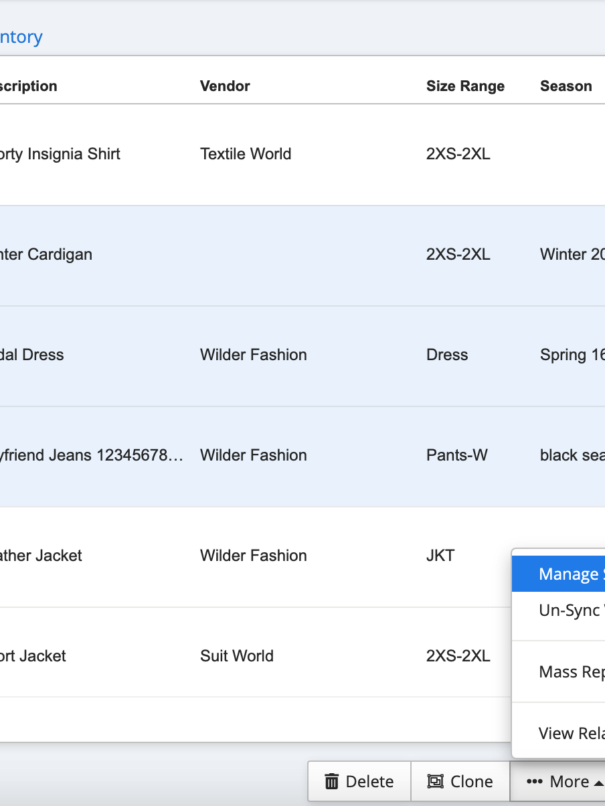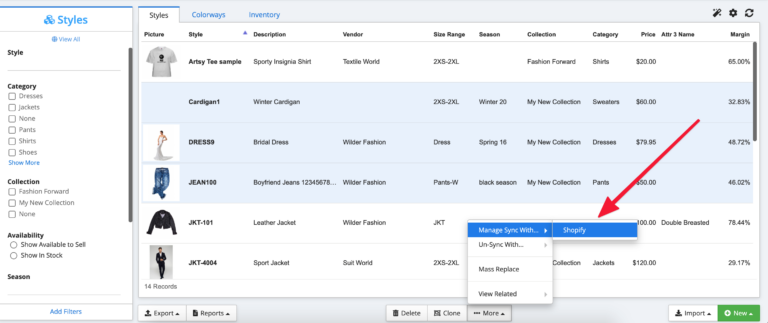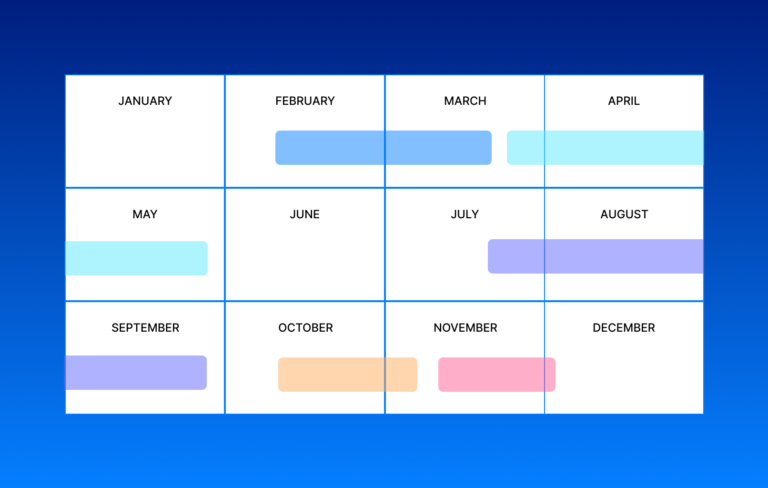The rapid pace of the apparel industry has been both astounding and challenging for brands that must keep up with constantly evolving trends and consumer demands. Consequently, brands like yours must leverage cutting-edge tools and systems to streamline their processes and get their products to the market faster. This is where Product Lifecycle Management (PLM) solutions come into play.
PLM solutions are changing the game for fashion brands, enabling them to reduce time to market and improve overall product development efficiency. In this article, we will discuss the significance of PLM solutions in the fashion industry and how they benefit fashion brands in various product lifecycle stages.

PLM Solutions in the Fashion Industry
Leveraging PLM solutions is a strategic business approach that helps brands manage the lifecycle of a product, from ideation, design, and development, to production, marketing, and sales. According to a Market Research Future report, the global PLM market is projected to reach a valuation of $1.97 billion by 2025, signifying the importance and wide adoption of PLM solutions across multiple industries.
In the fashion world, leading brands such as Nike, Adidas, and Zara have already successfully implemented PLM systems, illustrating the potential for more brands to reap the benefits.
Key Features of PLM Solutions for Fashion Brands
Expanding on the benefits of PLM solutions, they can make product development processes more efficient by providing brands with a clear view of the entire lifecycle, reducing the inherent risk of launching new products or services.
This includes reducing delays in design changes, testing processes, documentation requirements, and other areas of the product lifecycle. And by giving product teams a clear view of how their products are progressing, they quickly identify and address any areas that may be holding back progress.
Ultimately offering you a competitive advantage over other businesses that fail to recognize the importance of leveraging such a robust tool.
In short, a comprehensive PLM for fashion brands and retailers can bring the following benefits to the table.
- Design collaboration and ideation: PLM solutions offer a single platform for designers to collaborate on design ideas, exchange feedback, and make informed decisions in the unforgiving apparel industry. This centralization shortens the ideation process and reduces the risk of miscommunication or lost ideas.
- Trend analysis and forecasting: By integrating trend analysis tools and market research data, PLM solutions help fashion brands stay on top of emerging trends and make data-driven product development decisions. This feature enables companies to make more accurate trend forecasts and ensures that their products are both fresh and appealing to target audiences.
- Digital asset management: With PLM solutions, fashion brands can securely store, share, and manage all digital assets, such as designs, patterns, technical specifications, and images. This feature enhances collaboration among various teams and streamlines product development processes.
- Material management and costing: With tools that track and manage materials, inventory, and costs throughout the product lifecycle, fashion brands can optimize material usage, reduce waste, and maintain more accurate cost estimates, improving overall profitability.
- Supplier collaboration and production planning: PLM solutions serve as a central hub for communication and collaboration among suppliers, manufacturers, and internal teams. This coordinated approach improves production efficiency, reduces lead times, and ensures timely delivery of products to market.
- Sales and marketing integration: Integrating sales and marketing data into PLM systems allows fashion brands to quickly make informed decisions regarding product pricing, promotions, and channel strategies. This feature helps optimize sales performance and supports overall growth.
PLM Trends and Future Developments
We’ve established that in the apparel industry, PLM solutions are crucial for brands to streamline their product development process and to maintain competitive advantage. Current trends in PLM for fashion brands include the implementation of artificial intelligence (AI) and machine learning (ML) algorithms to analyze data and predict trends.
These technologies help minimize production costs and reduce waste. In addition, PLM also aids brands in inventory management, data analysis, and collaboration across departments. By using PLM, fashion brands can improve supply chain efficiency, minimize environmental impact, reduce development time, and increase profitability.
It’s not a false statement to say that the fashion industry’s future heavily relies on technology. After all, many fashion businesses have turned to augmented reality (AR) to offer customers more. Augmented reality allows customers to virtually try on clothing and accessories without ever leaving their homes. By using AR technology, fashion businesses can enhance the shopping experience and increase customer satisfaction and engagement, ultimately leading to higher sales and successfully fulfilling customer demand.
Still, if your fashion business’s backend lacks efficiency, even the most captivating and interactive on-site features you offer to your clients won’t be enough. However, following the trend of leveraging PLM solutions can help you solve this issue.

How PLM Solutions Help Shorten Time to Market
Product Lifecycle Management solutions are revolutionizing the fashion industry by helping businesses shorten time to market and stay ahead of the competition. Here’s how:
- Streamlined product development process: PLM software provides a centralized platform for managing product design, development, sourcing, and production, allowing teams to collaborate more effectively, reduce errors, and improve speed to market.
- End-to-end supply chain management: PLM solutions enable fashion businesses to manage the entire supply chain, from product development to distribution, ensuring that products reach customers on time.
- Valuable data and insights: PLM solutions provide businesses with valuable data and insights into customer preferences, allowing them to create products that are more in line with market demands. By using data analytics, businesses can identify trends, optimize products, and adjust production processes to meet changing consumer preferences.
- Improved decision-making: With real-time access to critical data, PLM solutions help fashion businesses make informed decisions, allowing them to create products that resonate with consumers.
Bottom Line
The fashion industry continuously evolves, and brands must keep up with the latest trends and consumer demands. Without a doubt, PLM solutions are game-changers for fashion brands, providing a centralized platform to streamline the product development process, optimize supply chain management, and shorten time to market. The key features of PLM solutions for fashion brands include design collaboration, trend analysis, digital asset management, material management, supplier collaboration, and sales and marketing integration. PLM trends for the future include the implementation of AI and machine learning to predict trends and minimize production costs.
PLM solutions offer numerous benefits for fashion brands, including efficient product development processes, improved collaboration and communication, better data and insights, and improved decision-making.
All in all, robust PLM for fashion brands and retailers can ensure a competitive edge, waste reduction, material usage optimization, and increased profitability, ultimately leading to satisfied customers and a successful business.






